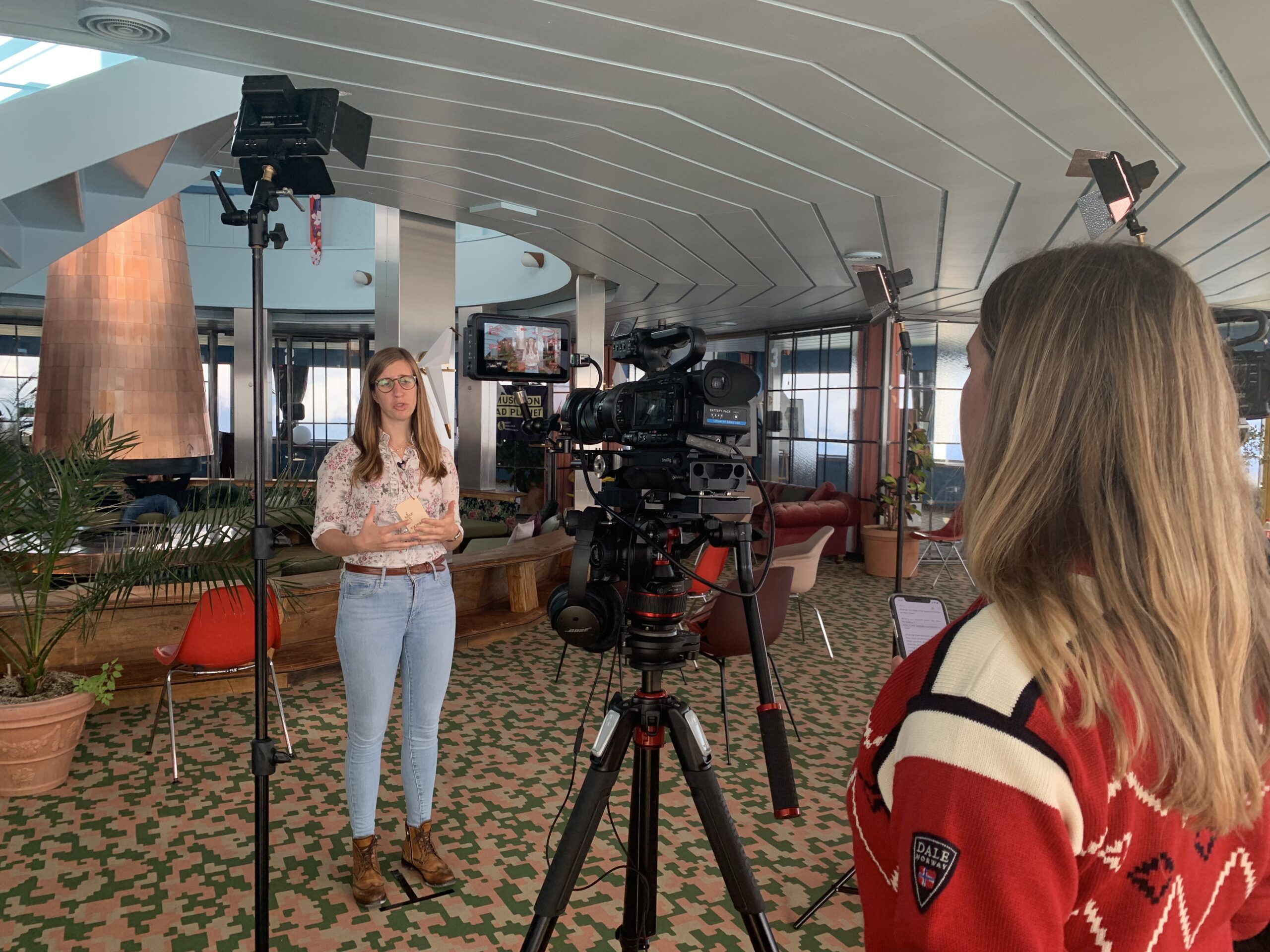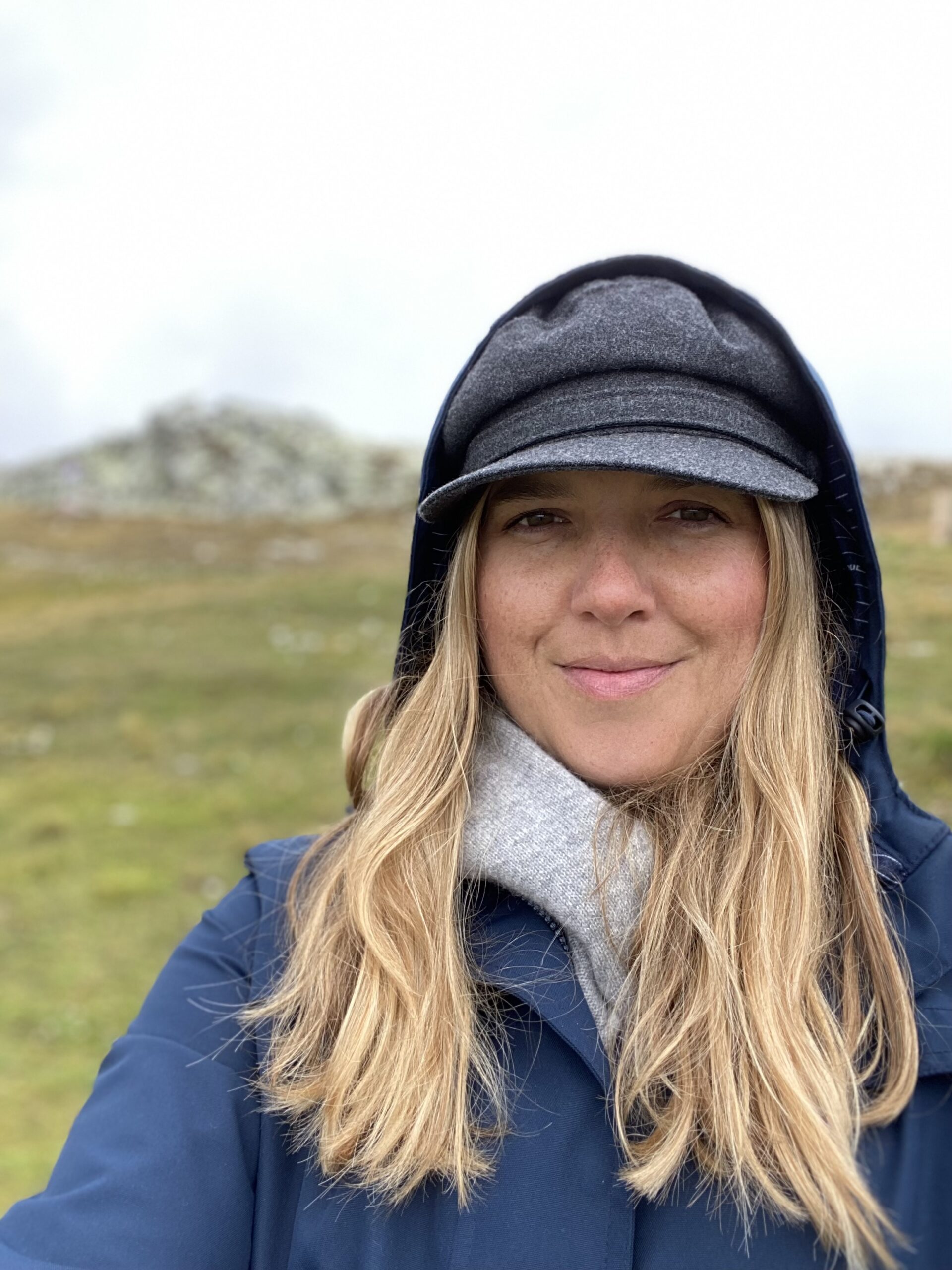Laax. A beautiful mountain resort situated in the Swiss Canton of Graubünden. Best known as a freeride snowboarder's paradise, the village was host in September 2021 to the first ever gathering of the [y]our 2040 community, a coalition of the willing focused on "the world we want to co-create." Supported by ETH Zurich, the event included participants from diverse backgrounds, all connected by a common goal and shared values. Taking the opportunity of being onsite to talk to some of them, we want to make the link with our RETHINKING LIVING campaign, a virtual red-thread we have been running since the start of the pandemic.
From Laax to Davos: Reflections on RETHINKING LIVING, Ep. 5
Episode 5: Viktoria Cologna, Postdoctoral Fellow, Harvard University
by Viktoria Ivarsson
The Journey Begins
RETHINKING LIVING invites us to consider the grand challenges and global issues of today through the lens of the latest science and knowledge. What is life? How do we live? What are the consequences of our lifestyle choices? We asked participants in Laax to tell us what are the questions that keep them up at night, and how they see the future evolving. This video series distills their reflections, to help us think about what could, and what should come next. ETH Zurich will take up these questions in its RETHINKING LIVING Pavilion, a space designed to promote dialogue and exchange with a broad audience during the World Economic Forum's Annual Meeting 2022 in Davos. Since filming, the meeting has been moved from January to May due to the pandemic.
We Can Agree on the Goals; Can We Agree on How Best to Achieve Them?

Photo credit: Daniel Barnbeck
In our fifth episode, researcher Viktoria Cologna explains the need to communicate with actors across society, from scientists to policy makers to business leaders, so they can all come together to achieve a common goal. The interface between science and policy may hold the key to creating lasting public trust and actually implementing actionable climate solutions. Since completing her doctoral studies at ETH Zurich, Viktoria has joined Harvard University's History of Science Department, as Visiting Postdoctoral Fellow.
For additional resources and further information, visit:
https://your2040.com
https://ethz.ch/en/the-eth-zurich/global/events/rethinking-living.htm
https://histsci.fas.harvard.edu/people/viktoria-cologna
For additional resources and further information, visit:
https://your2040.com
https://ethz.ch/en/the-eth-zurich/global/events/rethinking-living.htm
https://histsci.fas.harvard.edu/people/viktoria-cologna
Hi, my name is Viktoria Cologna. I just finished my doctoral studies at ETH Zurich. In my PhD, I've looked at the role of trust and extra credibility for climate change mitigation. So I've done research in environmental psychology to find out the factors that lead people to behave environmentally friendly.
I'm here at [y]our 2040 not only to contribute with the knowledge that I've gained during my PhD studies, but also to get going on achieving the goals that we're setting ourselves here at this event. I think that what we really need today is for change agents to get together and to think about what future we want to have, to both create a vision, but then to come together as ambitious individuals and to work on the future that we want to achieve. We really have a lot of scientific knowledge in climate change, but what is really missing is people who are willing to make a change to get together and to get started on that.
I think the biggest challenge is that, while we have a common vision on where we want to be; we signed the Paris Agreement that we want to reduce emissions and halve emissions by 2030 and reach net zero by 2050; while we have this common goal, the ways and the means to achieve these goals are very disputed in society and not only across countries, but also within countries. And this is why I think it's important to get together and to create a dialogue so that we can agree on the best means to achieve our common goals.
First of all, of course, it's very important to conduct research and to have the best available science. Only then can we try to engage with policy makers and other societal actors and to transfer this knowledge so that these actors can then make use of this knowledge and create science-based policies and other science-based action. And I think that it plays a critical role in not only producing excellent science, but also in working together with different actors. I strongly hope that by 2040, we will be on our way to have a fully decarbonized society.
I hope that actors all over the world will have committed more strongly to climate action, and I hope also that we will see a greater collaboration between very different groups in society. At this event today, we have artists, we have scientists, we have people from the business sector, from the finance industry. And I think that what we really need to achieve our goal is really to have all of these actors working together and committing to action.
I'm here at [y]our 2040 not only to contribute with the knowledge that I've gained during my PhD studies, but also to get going on achieving the goals that we're setting ourselves here at this event. I think that what we really need today is for change agents to get together and to think about what future we want to have, to both create a vision, but then to come together as ambitious individuals and to work on the future that we want to achieve. We really have a lot of scientific knowledge in climate change, but what is really missing is people who are willing to make a change to get together and to get started on that.
I think the biggest challenge is that, while we have a common vision on where we want to be; we signed the Paris Agreement that we want to reduce emissions and halve emissions by 2030 and reach net zero by 2050; while we have this common goal, the ways and the means to achieve these goals are very disputed in society and not only across countries, but also within countries. And this is why I think it's important to get together and to create a dialogue so that we can agree on the best means to achieve our common goals.
First of all, of course, it's very important to conduct research and to have the best available science. Only then can we try to engage with policy makers and other societal actors and to transfer this knowledge so that these actors can then make use of this knowledge and create science-based policies and other science-based action. And I think that it plays a critical role in not only producing excellent science, but also in working together with different actors. I strongly hope that by 2040, we will be on our way to have a fully decarbonized society.
I hope that actors all over the world will have committed more strongly to climate action, and I hope also that we will see a greater collaboration between very different groups in society. At this event today, we have artists, we have scientists, we have people from the business sector, from the finance industry. And I think that what we really need to achieve our goal is really to have all of these actors working together and committing to action.

Photo credit: Viktoria Ivarsson
About the author
Change Agent. Go-to Person. Viktoria Ivarsson is the International Relations Officer in the Office of the President of ETH Zurich, where she works on projects and events of international scope to increase the visibility of the university worldwide. She also manages the ETH Circle, an international network of alumni and friends of ETH Zurich who act as ambassadors. Formerly with EHL School of Hospitality, Hirslanden, and the World Economic Forum, Viktoria holds an MAS in Sports Administration and Technology from the Swiss Federal Institute of Technology in Lausanne (EPFL), and an MA in International Relations from the Graduate Institute of International and Development Studies (HEI). A Swiss and Swedish national, she is fluent in 4 languages, and is currently learning German. A member of Nordiska, the Nordic Rowing Association, she can be found most mornings rowing on Lake Zurich. You can follow her on Twitter at V_Ivarsson.
comment
Please activate comment.


